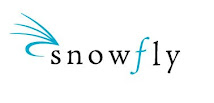 Incentive and Recognition Strategies Based on Facts and Research
Incentive and Recognition Strategies Based on Facts and Research
Dr. Brooks Mitchell is a professor of management at The University of Wyoming and the Founder of Snowfly Incentives. He has written and published extensively in the field of human motivation in the workplace.
Question for the Professor: Are peer-to-peer recognition and reward programs less effective during tough economic times such as these? Dr. Mitchell's Response:
Research has consistently shown that one of the main reasons people stay on non-exempt jobs is that they don't want to sever the coworker relationships they have built. Thus, in normal economic times a well-designed and managed peer-to-peer recognition program (i.e. a Snowfly-managed program) will facilitate coworker bonding, creating an organizational climate wherein workers are more prone to remain on the job.
In tough times, layoffs will undoubtedly cause a great deal of uncertainty and stress to those employees who remain on the job. Often overlooked in these situations is the emotional trauma experienced by the remaining employees due to the shattering of their coworker bonds. Unless these bonds are replaced, employee morale (already at low levels due to layoffs) will continue to decline, leading to numerous issues of concern such as decreased levels of overall performance and an increase in health care costs.
A “beefed up” peer-to-peer recognition program will diminish the chances of this happening by giving the organizational survivors opportunities to build and enhance new bonds with their coworkers. Furthermore, the display of faith and confidence your company shows by implementing such a program will also have positive effects on morale.







0 comments:
Post a Comment